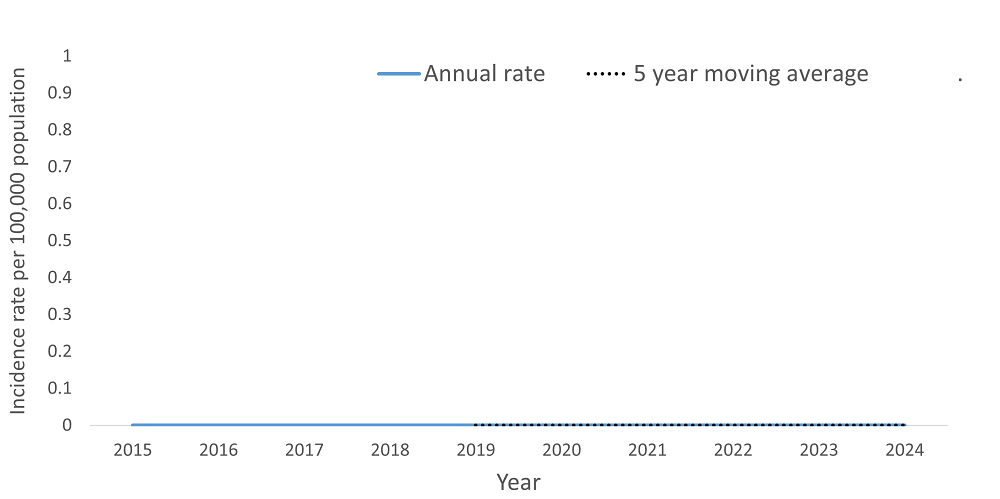Measles is caused by the measles virus, a very contagious respiratory virus that can spread easily through the air when someone with measles breathes, coughs, sneezes or talks.
The illness can be more severe in children younger than five years of age, and adults over the age of 20 years, immunocompromised individuals, and susceptible pregnant individuals.
Many people fully recover from measles within two to three weeks, but some people will have complications that can include ear infection, pneumonia, diarrhea, respiratory failure, inflammation and swelling of the brain (encephalitis), blindness, deafness, or brain injury. It is also possible to develop a rare and fatal neurological condition called subacute sclerosing panencephalitis seven to ten years after recovering from measles. The risk of developing this condition may be higher if you have measles before two years of age.
Complications for people who get measles while pregnant can include miscarriage, premature labour, or giving birth to an infant with a low birth weight.
Over 90 per cent of people who aren't immune will become infected if exposed to measles. If you are infected, you can spread measles from four days before the onset of a rash to four days after a rash appears. The virus can live up to two hours in the air or on surfaces in a space where you've been.
Local Information
2024 Statistics
Incidence rate is the number of new cases of disease divided by the number of persons at risk for the disease during a particular time period.
Cases:
0*
*Includes confirmed cases in 2024.
Incidence rate per 100,000 in 2024: 0
Incidence rate per 100,000 of Measles by year

Data Sources |
|
More Information about Measles |
||||||||||||||
Reporting |
||||||||||||||
| Report to the Health Unit immediately by phone at 705-474-1400 or toll free at 1-800-563-2808, ext. 5229 if measles is suspected or confirmed as per Ontario Regulation 135/18 and amendments under the Health Protection and Promotion Act, R.S.O., c.H.7. | ||||||||||||||
Should one go to childcare, school, or work if they have measles? |
||||||||||||||
|
Exclude from work, school, childcare, and other public activities for four days from the onset of the rash and only return once well enough to participate comfortably in activities. Follow the direction of your healthcare provider, public health case manager, or occupational health at your workplace. |
||||||||||||||
Vaccine Information |
||||||||||||||
|
Measles is preventable by vaccination. Check your vaccination records or call the Vaccine Preventable Diseases program at 705-474-1400 or toll free at 1-800-563-2808, ext. 5252 to book a vaccination appointment or to obtain additional information. The body needs time to produce protective antibodies in response to the vaccine. People are usually fully protected after about two weeks post-vaccination. Two doses of the measles vaccine are about 97% effective at preventing measles if exposed to the virus. One dose is about 93% effective.
|
||||||||||||||
Healthcare Provider Information |
||||||||||||||
|
Contact our Communicable Disease Control (CDC) program at 705-474-1400 or toll free at 1-800-563-2808, ext. 5229, or by email to cdc@healthunit.ca for more information.
Last updated: Oct 2025, by CDC


